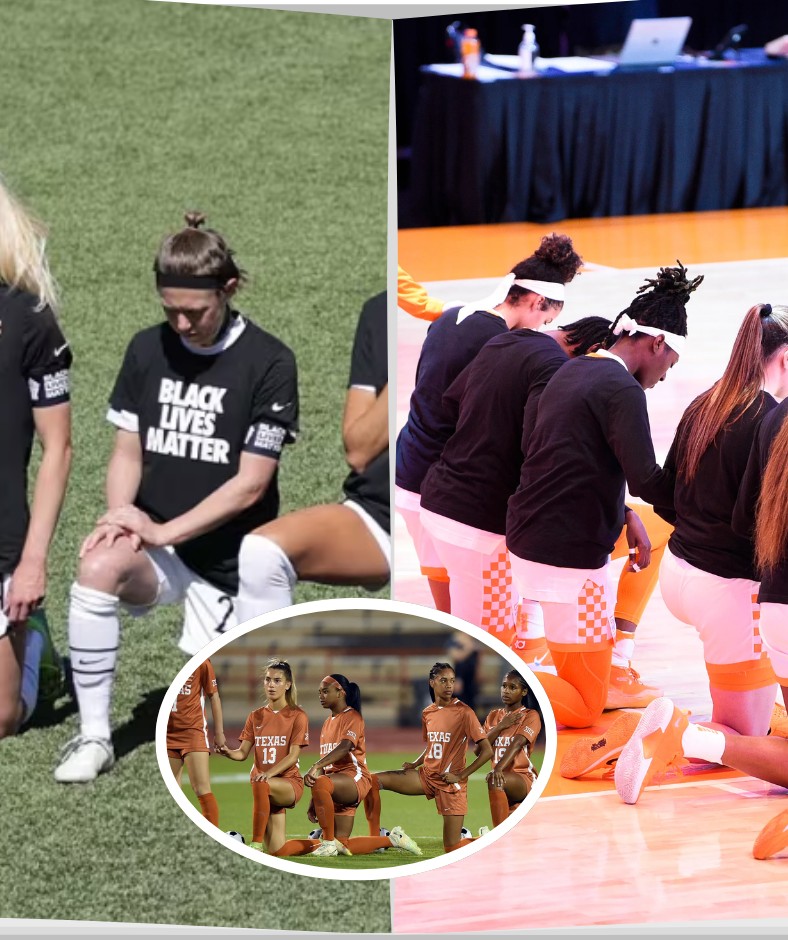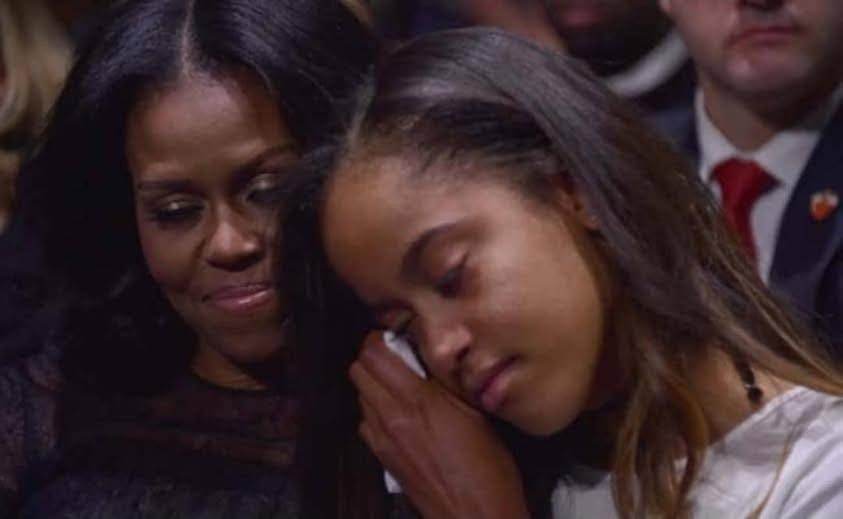HT6. Controversy Over Student Protests During National Anthem at the University of Texas
Recent discussions surrounding freedom of expression in academic environments have reignited after a peaceful protest during the national anthem at a University of Texas sporting event. Reports suggest that a group of students kneeled during “The Star-Spangled Banner” to protest against racial injustice and social inequality, echoing similar movements from past years. This incident has since evolved into a major point of discussion about constitutional rights, the role of educational institutions, and the responsibilities of students when engaging in political expression.
A Silent Protest Sparks Debate

The students involved in the protest reportedly took a knee as a symbolic gesture to raise awareness about systemic racism and police brutality. Inspired by the peaceful demonstrations initiated by former NFL quarterback Colin Kaepernick in 2016, this act of protest aimed to spotlight ongoing social justice issues in the United States. The movement initially began as a form of non-violent protest against the treatment of African Americans and minorities, particularly in the context of law enforcement practices.
While the protest itself was non-disruptive, it has sparked considerable debate across campus and on social media platforms. Reactions have varied widely, with some applauding the students for exercising their First Amendment rights, while others have expressed disapproval, viewing the act as disrespectful to national symbols. The divided opinions highlight the complex and often emotional nature of debates surrounding patriotism, civil rights, and freedom of expression.
University’s Response and Official Statement

The University of Texas administration has not confirmed any disciplinary actions related to the protest. In a public statement, a university spokesperson emphasized the institution’s commitment to upholding free speech and the right to peaceful protest:
“The University of Texas values freedom of expression as a core principle of academic life. We encourage our students to engage thoughtfully and respectfully in civic discourse. While we recognize the diverse perspectives within our community, the university has not enacted punitive measures against students for peaceful protests.”
This clarification came after widespread speculation and misinformation regarding alleged expulsions or scholarship revocations, none of which have been substantiated by credible sources. The university stressed that students are encouraged to voice their opinions and engage in peaceful activism, provided that it does not infringe on the rights of others or disrupt academic activities.
Public Reactions and Broader Implications

The incident has attracted attention beyond the university, with civil rights organizations and free speech advocates weighing in. Groups such as the American Civil Liberties Union (ACLU) have reiterated the importance of protecting peaceful demonstrations, particularly within educational settings where young people are encouraged to develop critical thinking and civic engagement skills.
Social media has been a battleground for differing opinions, with hashtags related to the protest trending nationally. Supporters argue that peaceful protest is a fundamental right that should be protected, while critics believe that certain venues, like national sporting events, should remain apolitical. Some commentators have pointed out that the very nature of protest is to disrupt the status quo and draw attention to issues that may otherwise be ignored.
Historical Context: The Legacy of Protest in America
Protests have long been a part of American history, serving as catalysts for change in various social, political, and economic arenas. From the Civil Rights Movement of the 1960s to the more recent Black Lives Matter demonstrations, peaceful protests have played a crucial role in advancing human rights and highlighting systemic injustices.
The act of kneeling during the national anthem has become a powerful symbol of dissent and a call for justice. While it has been met with criticism from some who view it as unpatriotic, others argue that it embodies the very principles of freedom and democracy that the anthem represents. This duality reflects the broader tension between expressions of patriotism and the right to critique governmental and societal institutions.
Legal Perspectives: Understanding Students’ Rights
Legal experts note that public universities, as government-funded institutions, are bound by the First Amendment, which protects students’ rights to free expression. This protection extends to peaceful protests, even if the message is controversial or unpopular. However, schools also have policies in place to maintain order and respect during official events, leading to complex legal and ethical discussions.
Court cases such as Tinker v. Des Moines Independent Community School District (1969) have set important precedents, affirming that students do not “shed their constitutional rights to freedom of speech or expression at the schoolhouse gate.” Nonetheless, these rights are not absolute, and schools can impose reasonable restrictions to prevent substantial disruption to the educational environment.
The Ongoing National Conversation
This event at the University of Texas is part of a larger national conversation about the intersection of patriotism, free speech, and social activism. Similar protests have occurred at various universities and professional sports events across the country, each time reigniting debates about the appropriate balance between institutional policies and individual rights.
Many educational institutions are grappling with how to support student activism while maintaining a respectful and inclusive environment. Universities often serve as microcosms of broader societal issues, providing a platform for young people to explore and express their beliefs. This dynamic underscores the importance of fostering open dialogue and critical thinking within academic communities.
What Comes Next?
As the situation continues to unfold, students and faculty at the University of Texas are engaging in open dialogues about civic responsibility, the power of peaceful protest, and the role of higher education in fostering democratic values.
Campus organizations are planning forums and discussions to address the issues raised by the protest, aiming to create a space where diverse viewpoints can be expressed constructively. These events are designed to encourage thoughtful debate, promote understanding, and explore the complexities of free speech in contemporary society.
Moreover, student leaders are collaborating with faculty members to develop workshops and educational programs focused on civil rights, constitutional law, and the history of social movements. By providing these learning opportunities, the university hopes to empower students with the knowledge and skills needed to engage in meaningful activism.
Global Perspectives: Protests Beyond the United States
While the focus of this controversy is on the University of Texas, the issues it raises resonate globally. Around the world, students and activists face similar challenges when advocating for social and political change. From pro-democracy movements in Hong Kong to climate change protests led by youth activists like Greta Thunberg, the struggle for free expression and the right to protest is a universal theme.
Comparing these movements provides valuable insights into the ways different societies approach dissent and civic engagement. It also highlights the role of young people as catalysts for change, demonstrating the power of collective action in shaping public policy and social norms.
Conclusion
While the peaceful protest at the University of Texas has sparked controversy, it has also provided an opportunity for meaningful conversations about the values that define our society. As debates continue, one thing remains clear: the right to express one’s beliefs is a cornerstone of American democracy, especially within the halls of higher learning.
The incident serves as a reminder of the importance of protecting free speech while fostering a respectful and inclusive environment. It also underscores the need for ongoing dialogue about the role of protest in a democratic society and the responsibilities that come with the right to express one’s views.
Ultimately, the University of Texas protest is not just about a single event; it is part of a broader narrative about the enduring struggle for justice, equality, and the freedom to speak one’s truth. As students, educators, and citizens continue to engage with these issues, they contribute to the vibrant and dynamic tradition of democratic discourse that defines our nation.













